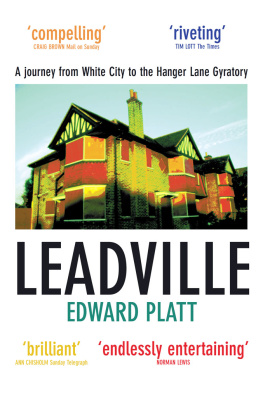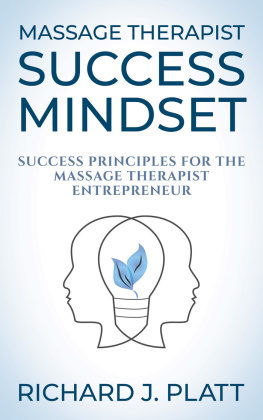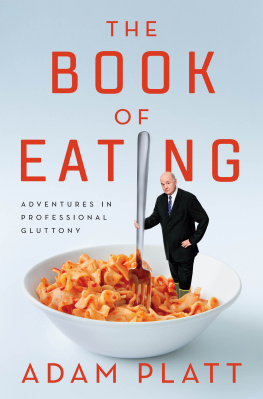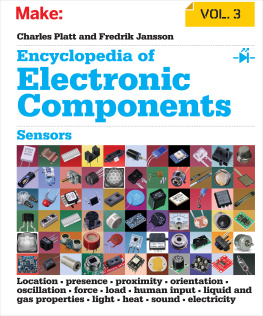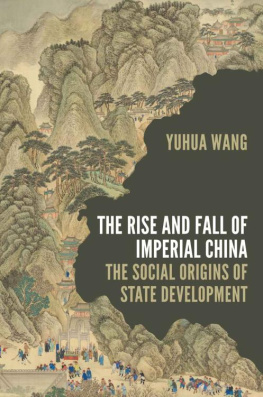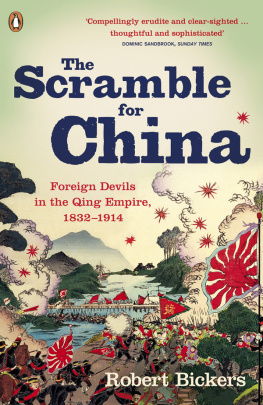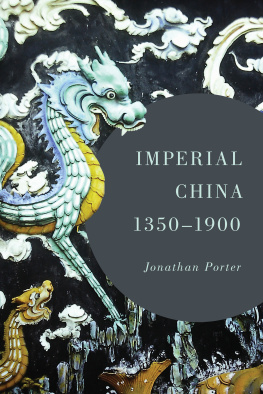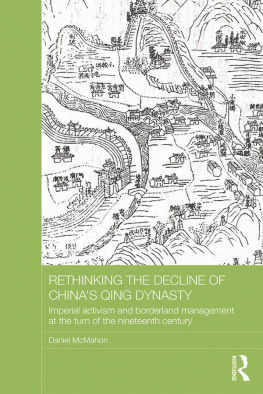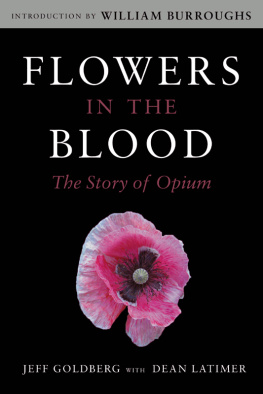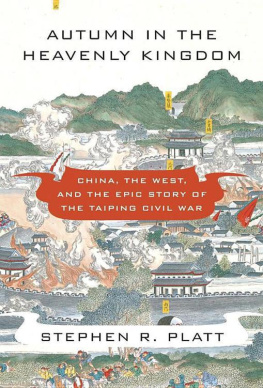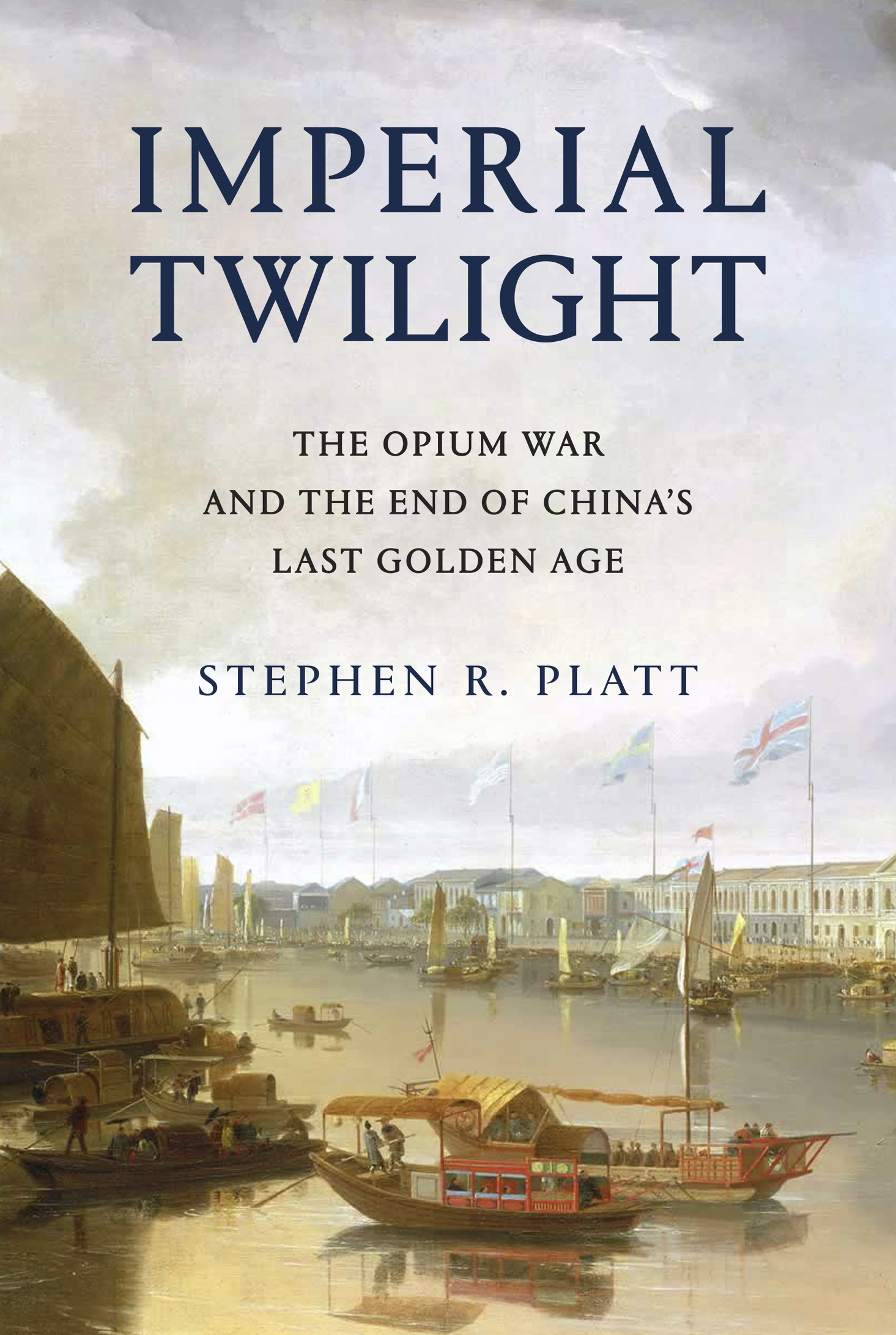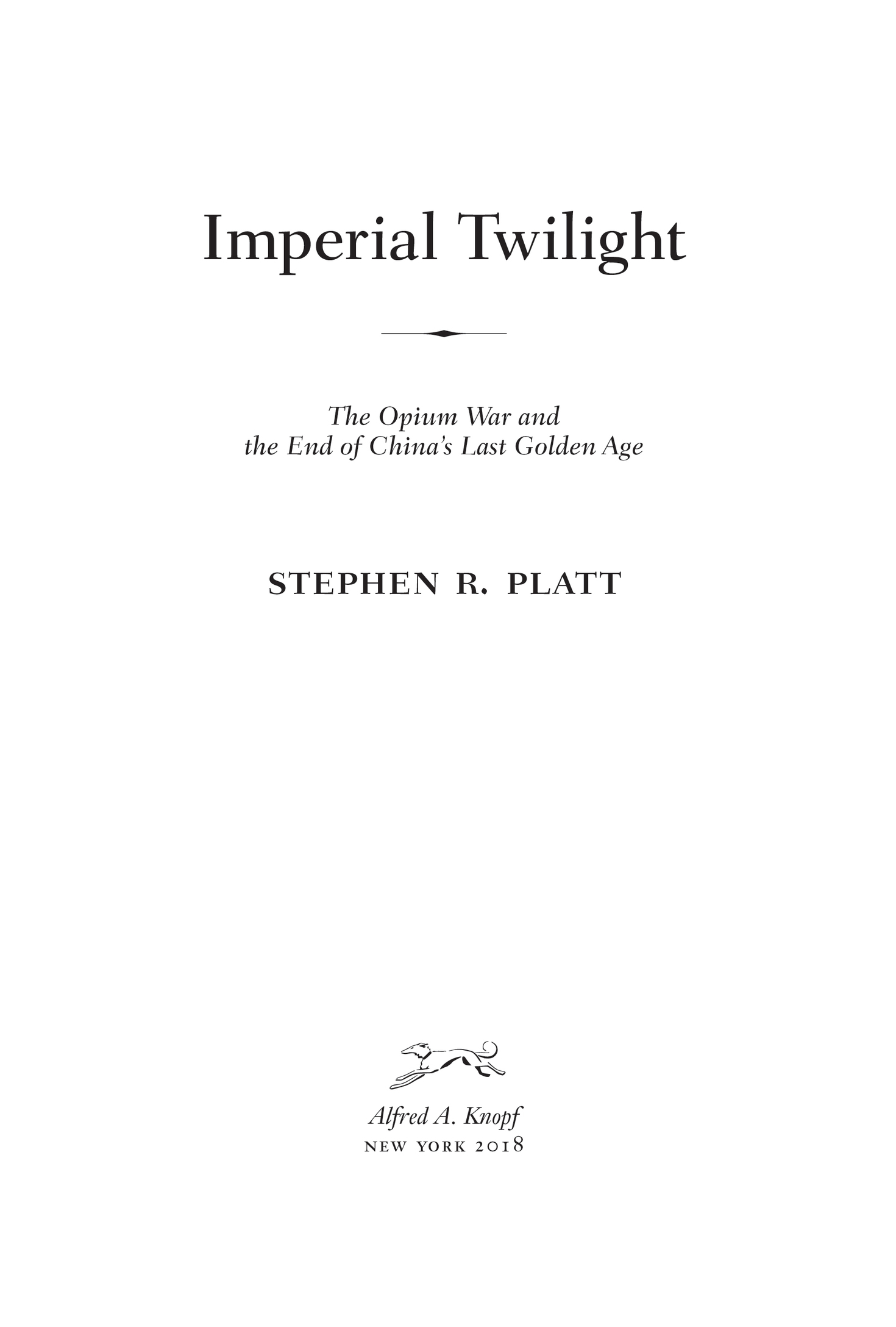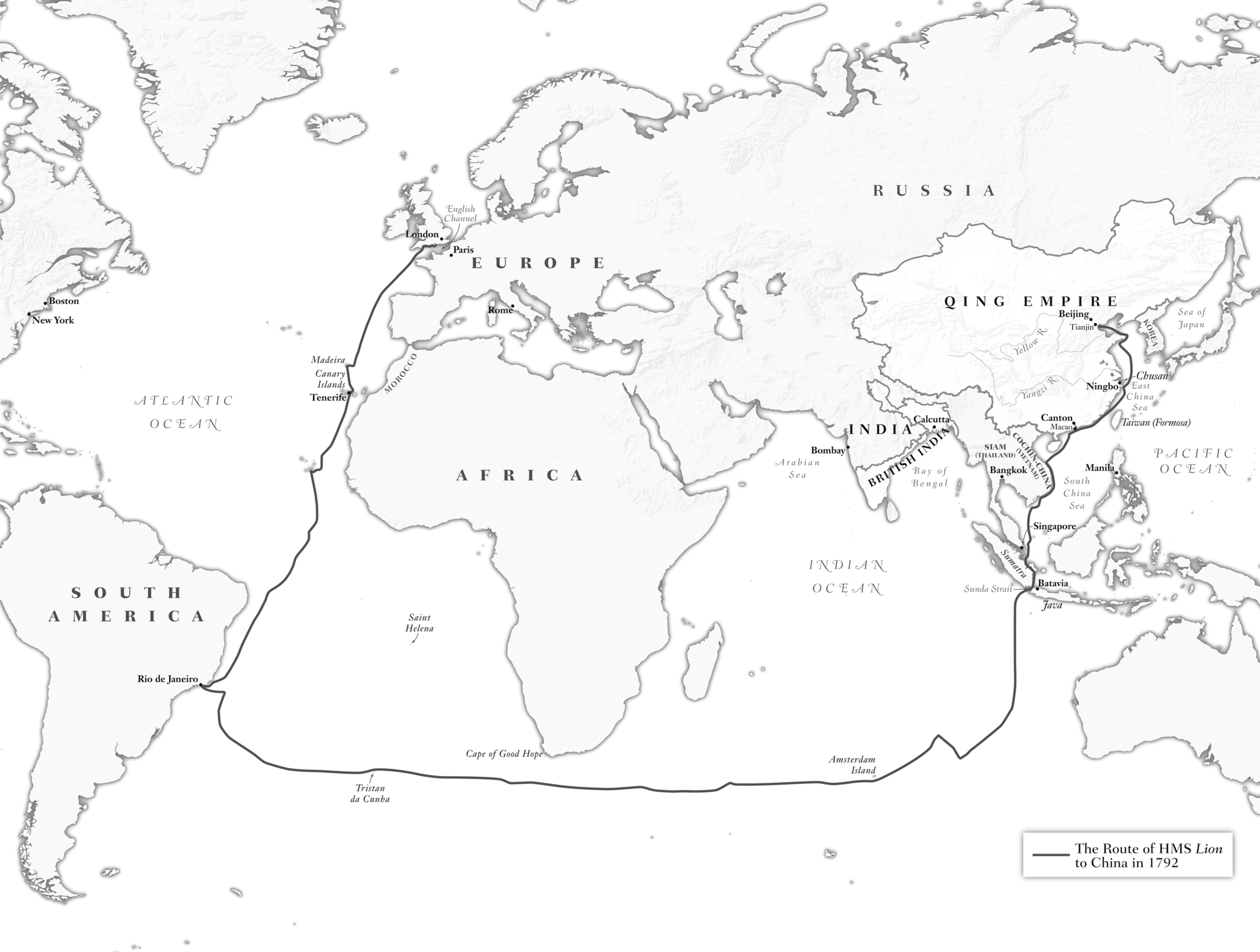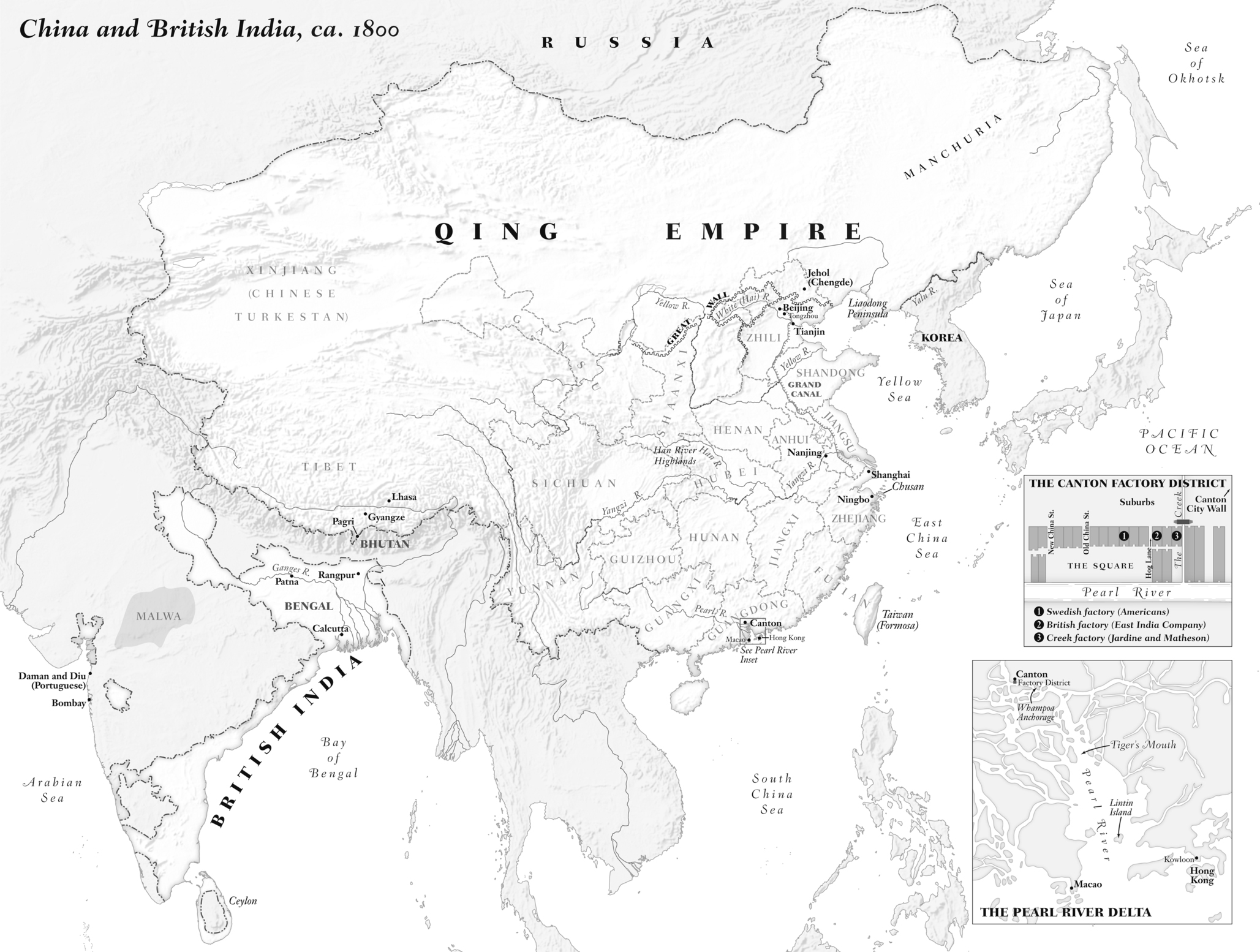Contents
ALSO BY STEPHEN R. PLATT
Autumn in the Heavenly Kingdom:
China, the West, and the Epic Story of the Taiping Civil War
Provincial Patriots:
The Hunanese and Modern China
THIS IS A BORZOI BOOK
PUBLISHED BY ALFRED A. KNOPF
Copyright 2018 by Stephen R. Platt
All rights reserved.
Published in the United States by Alfred A. Knopf, a division of Penguin Random House LLC, New York, and distributed in Canada by Random House of Canada, a division of Penguin Random House Canada Limited, Toronto.
www.aaknopf.com
Knopf, Borzoi Books, and the colophon are registered trademarks of Penguin Random House LLC.
Library of Congress Cataloging-in-Publication Data
Names: Platt, Stephen R., author.
Title: Imperial twilight : the Opium War and the End of Chinas Last Golden Age / by Stephen R. Platt.
Description: New York : Alfred A. Knopf, 2018. | A Borzoi book. | Includes bibliographical references.
Identifiers: LCCN 2017028172| ISBN 9780307961730 (hardcover) | ISBN 9780307961747 (ebook)
Subjects: LCSH : ChinaHistoryOpium War, 18401842. | China History19th century. | ChinaForeign relations19th century.
Classification: LCC DS 757.5 . P 55 2018 | DDC 951/.033dc23 LC record available at https://lccn.loc.gov/2017028172
Cover image: View of the Canton Factories (detail) by William Daniell, ca. 1805. Bridgeman Images
Cover design by John Vorhees
Maps by Mapping Specialists, Ltd.
Ebook ISBN9780307961747
v5.2
a
For Francie, Lucy, and Eliot
Desolate castle, the sky, the wide desert.
There is no wall left to this village.
Bones white with a thousand frosts,
High heaps, covered with trees and grass;
Who brought this to pass?
Who has brought the flaming imperial anger?
Who has brought the army with drums and with kettle-drums?
Barbarous kings.
A gracious spring, turned to blood-ravenous autumn
LI BO (701762), TRANS . EZRA POUND ,
Lament of the Frontier Guard
Weave a circle round him thrice,
And close your eyes with holy dread,
For he on honey-dew hath fed
And drunk the milk of Paradise.
SAMUEL TAYLOR COLERIDGE ,
Kubla Khan
Contents




Introduction: Canton
If you stand outside the wall, it is impossible to gauge the size of the city. Canton is built on a plain, so the low, flat buildings of brick and wood that lie inside are invisible from where you stand. The wall is thirty feet high and crenellated, built from large blocks of sandstone at its base and smaller bricks above. It stretches as far as you can see in either direction, with forts visible on top at regular intervals, cannons peering outward. Near you is one of the twelve massive wooden gates that open into the city, a shadowed cave guarded by soldiers and horsemen. The gates creak open each morning at dawn, and close again each evening around 9 p.m. Not that you will be allowed in. As a foreigner, you are stopped at the gate and turned away. You will not see the fantastic warren of narrow streets inside, paved with thick slabs of granite. You will not see the dense brick houses with their sloping tiled roofs, the vast examination hall with its thousands of cells, the lavish mansions, the temples, the gardens, or the government offices that lie within.
Instead, you stay outside and wander back through the suburbs, the sprawling and amorphous settlements surrounding the wall where you could walk for miles without any sense of their coming to an end. It is steamy weather, so humid your sweat seems to just blend into the air around you. The paved streets are twisting and so very narrow that you can sometimes touch the walls on both sides at the same time. The buildings here, fronted with fragrant carved wood, are mostly two stories high, with tall shutters on the windows. Above you, laundry hangs to dry on lines stretched across the top of the alley, creating a canopy effect. It is hard to hear over the din of the hawkers and the shouting of porters and chair-bearers as they try to push their way through. Everywhere is the press of humanitypeople traveling on foot or carried in sedan chairs, lounging in the alleyways, eating in open-air restaurants as street performers and beggars ply them for money.
If there are other foreigners about in the suburbs you might overhear a few snatches of Pidgin English, the local trading language. It is a hybrid of the Cantonese dialect of the city and the European tongues native to the foreigners who come to trade here (pidgin means business). For the most part it is made up of English words, sometimes with a bit of Hindi or Portuguese, set to Chinese grammar and pronunciation. It is a meeting ground between vastly different languages and will take some getting used to. Fragments of it will be absorbed back into Englishhaving a look-see or eating chow, asking someone to hurry up chop-chop or telling them Long time no see. In its full-blown form it is a colorful singsong of a language. I saw a man eating becomes My look-see one piecee man catchee chow-chow. He has no money translates to He no hab catchee dollar. You belongy smart inside means Youre very smart.
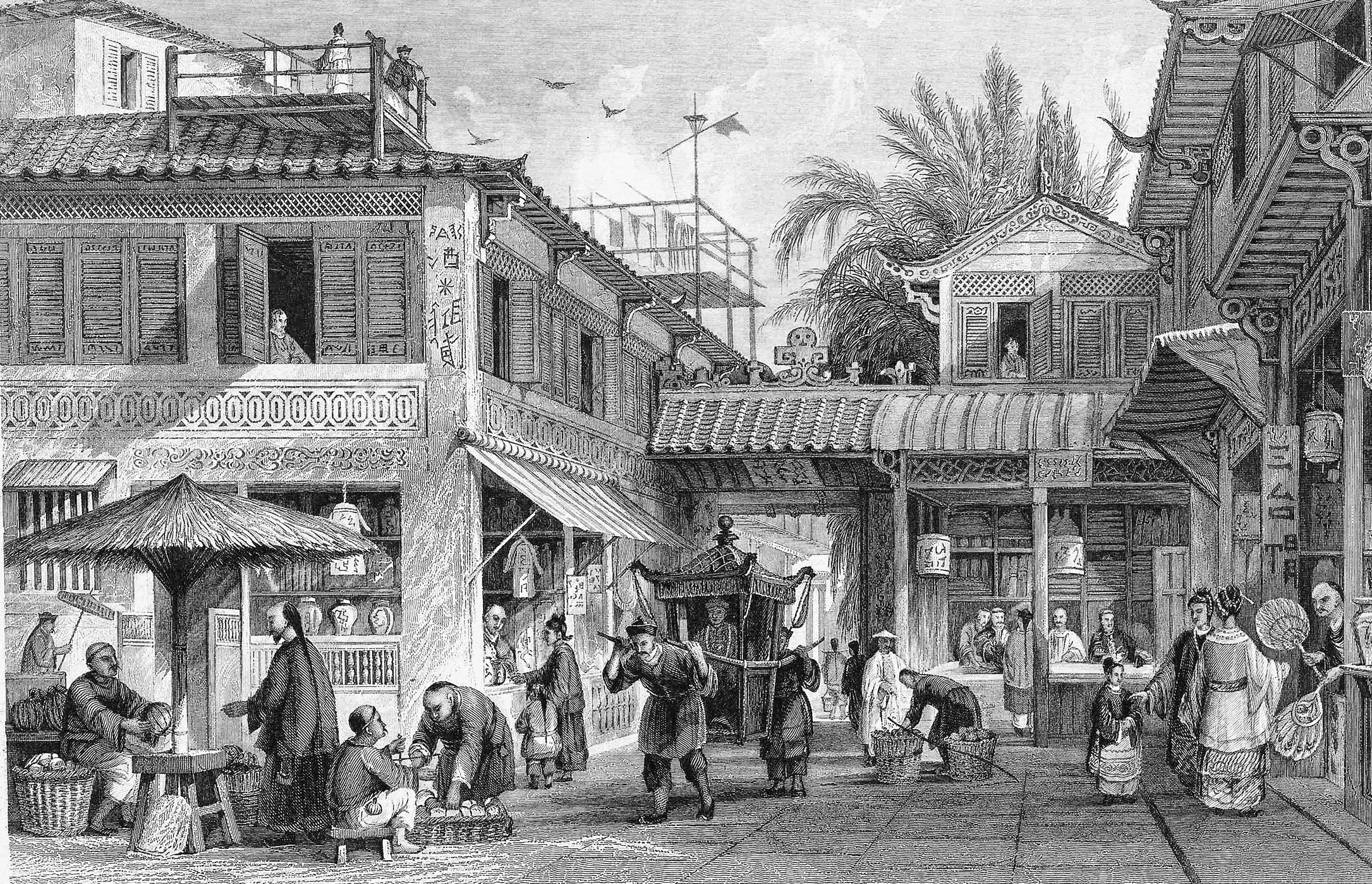
A Canton street scene
Vertical signs hang from the sides of most buildings with Chinese characters announcing what is for sale in the shops on the ground floor. You cant read them. But you may be relieved to see that some stores have signs written out in English letters to lure you in. You enter one of these shops through a tall central doorway flanked by two large open windows. It is cooler inside, out of the sun. There is a counter near one of the windows, piled with writing materials. A clerk flips the beads of an abacus rapidly with one hand while he writes down calculations with the other. It is quiet except for the clicking of the abacus. The shop is crammed to the rafters with silk of every description.
Back out in the alley you continue on your way, past shops selling tea, medicine, porcelain, a hundred other goods. A great deal of money changes hands here. There are craftsmen and artistscabinet makers, blacksmiths, tailors, painters. The painters work in oil, on glass or canvas. They can produce Chinese or European images for you with equal skill, easily replicating anything you bring to them. They will even hold sittings for a visitor like yourself to get your portrait painted. Some of the foreigners say their oil portraits arent always so flattering. But as the joke goes, when they complain the painters just tell them, No hab got handsome face, how can hab handsome picture?


